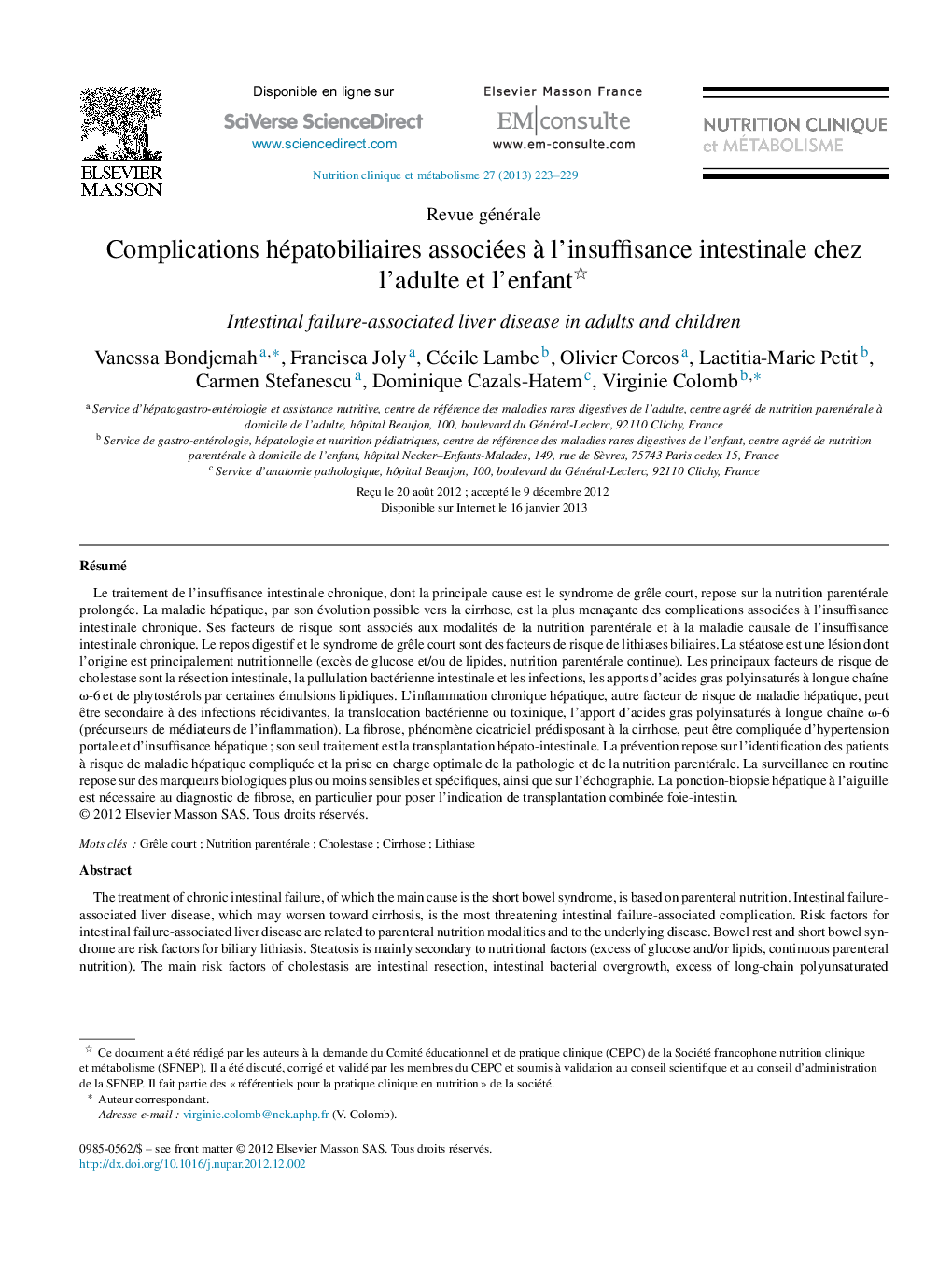| Article ID | Journal | Published Year | Pages | File Type |
|---|---|---|---|---|
| 2693945 | Nutrition Clinique et Métabolisme | 2013 | 7 Pages |
Abstract
The treatment of chronic intestinal failure, of which the main cause is the short bowel syndrome, is based on parenteral nutrition. Intestinal failure-associated liver disease, which may worsen toward cirrhosis, is the most threatening intestinal failure-associated complication. Risk factors for intestinal failure-associated liver disease are related to parenteral nutrition modalities and to the underlying disease. Bowel rest and short bowel syndrome are risk factors for biliary lithiasis. Steatosis is mainly secondary to nutritional factors (excess of glucose and/or lipids, continuous parenteral nutrition). The main risk factors of cholestasis are intestinal resection, intestinal bacterial overgrowth, excess of long-chain polyunsaturated Ï6 fatty acids and phytosterols from some lipid emulsions. Liver chronic inflammation, another risk factor for intestinal failure-associated liver disease, is related to recurrent infections, bacterial or toxinic translocation, high intake of long-chain polyunsaturated Ï6 fatty acids as precursors of inflammatory mediators. Fibrosis, secondary to any lesions, could progress toward cirrhosis with portal hypertension and liver failure. In such condition, the only life-saving treatment is a combined liver-intestinal transplantation. The prevention is based on the identification of patients with high risk of complicated liver disease, and on the optimal management of both underlying disease and parenteral nutrition. Routine surveillance is based on biological markers of variable sensitivity and specificity, and ultrasonography. Liver biopsy is required to diagnose fibrosis, especially prior to decide for an isolated intestinal transplantation or combined intestine-liver transplantation.
Keywords
Related Topics
Health Sciences
Medicine and Dentistry
Gastroenterology
Authors
Vanessa Bondjemah, Francisca Joly, Cécile Lambe, Olivier Corcos, Laetitia-Marie Petit, Carmen Stefanescu, Dominique Cazals-Hatem, Virginie Colomb,
